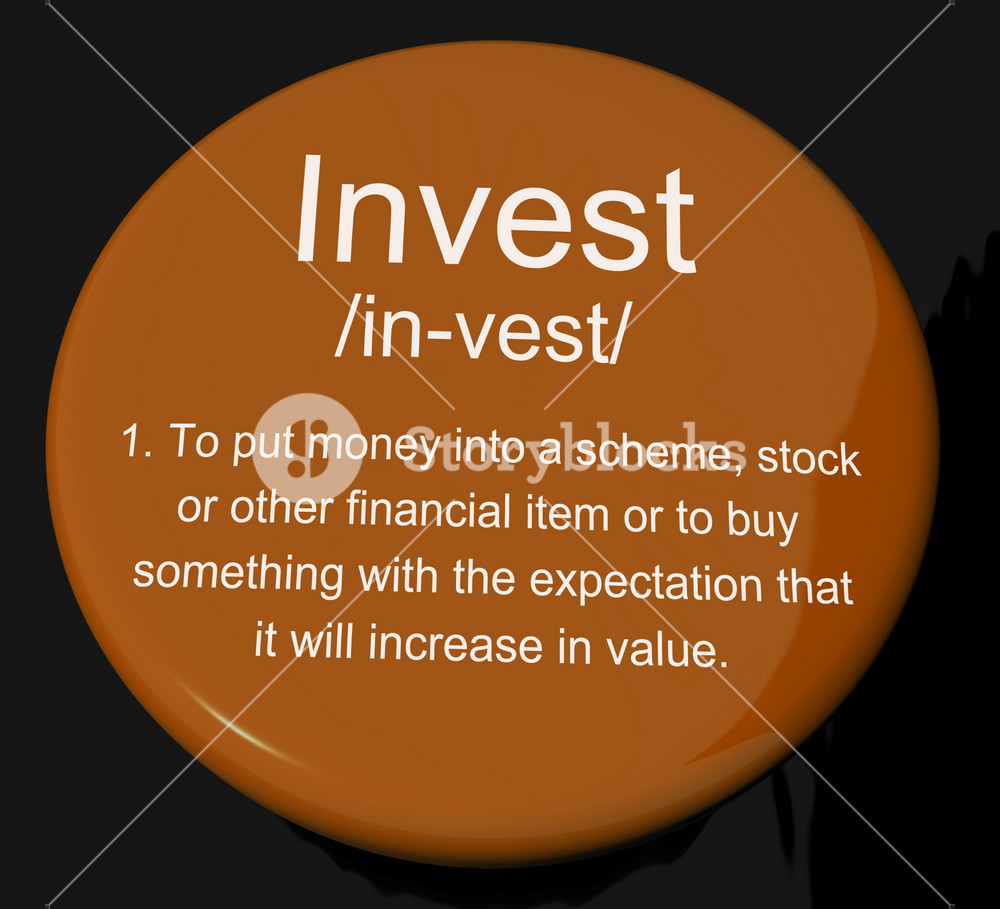
Currency risk
Currency risk is a risk that investors must be aware of when buying international stocks. This risk is often referred to as foreign-exchange or exchange-rate risk and measures the fluctuations in the value of one country's currency relative to another. Investors should be prepared to deal with currency risk.
Foreign investments are more likely to be subject to currency risk. However, they can also provide a different opportunity. They are more likely to grow faster and offer higher upside potential. Investors may choose to invest in currency hedged fund investments to reduce this risk. These funds can be used to offset currency risk and allow investors to invest in stocks specific to a country or region.
Geopolitical risk
Geopolitical risk in international stock markets is something that every investor should be aware of, whether they are seasoned investors or newbies. Although stock prices are directly affected by the risk of geopolitical conflict, there are other ways to assess geopolitical threats. Consider, for example, the risk that there will be nuclear war, as well as the possibility of political instability.

Investing internationally in stocks is not without risk. In particular, geopolitical risks can have a major impact on the value of your investments. You could lose your investments if the government of your country prohibits imports from certain nations. Geopolitical risk can fuel civil unrest in certain countries.
Economic risk
It's crucial to understand the risks of investing in international stocks. You should be aware of currency fluctuations. They can either work in your favor or cause damage to your investment. When you invest in overseas, you aren't just investing in individuals and businesses in that country. You also have to consider the economic impact of such events on the country. International stock markets may not offer as much protection as domestic stocks exchanges, and you might be limited by changes in government.
International stocks carry a greater risk of currency fluctuations, political or social instability and other risks. These factors can influence investor attitudes and outlooks. This can lead to significant fluctuations in stock prices. Country risk is another important factor that can affect investor confidence and market sentiment. It can occur when a country has social unrest or is at war.
Sector exposure
International stocks can be a valuable component of an investment portfolio. The world's emerging middle class is experiencing rapid economic growth. International stocks can offer investors better returns as international growth is expected to outpace the United States. International stocks offer greater potential for higher returns than the United States, and are easier to include in a portfolio today than they were 20-years ago.

In the past, U.S. stocks have fared better than international stocks over many years. While U.S. stocks have performed well, international stocks are likely to surpass them once more. However, timing stock rotations is difficult. If you are underexposed to international stocks, you could miss significant gains when the market reverses and starts to correct.
Political risk
Investors can experience volatility due to the political risk associated with international stocks. It can affect any investment that relies on foreign markets. The value of a company can be affected by even the smallest change in government. There are many ways to reduce this risk. One strategy to reduce risk is diversification. Diversification allows your investments to be spread across different types of businesses.
Political risk in international stocks refers to the possibility that political changes or the political landscape could negatively impact your investment. This risk can be due to anything from a change in party leadership to changes in legislation and policy. Investors might find it difficult to withdraw funds if there is political instability. Domestic investments that depend on foreign markets can also be exposed to political risk.
FAQ
What are some advantages of owning stocks?
Stocks are more volatile than bonds. The stock market will suffer if a company goes bust.
But, shares will increase if the company grows.
Companies often issue new stock to raise capital. Investors can then purchase more shares of the company.
To borrow money, companies use debt financing. This allows them to access cheap credit which allows them to grow quicker.
People will purchase a product that is good if it's a quality product. The stock's price will rise as more people demand it.
As long as the company continues producing products that people love, the stock price should not fall.
What is the difference in marketable and non-marketable securities
The key differences between the two are that non-marketable security have lower liquidity, lower trading volumes and higher transaction fees. Marketable securities on the other side are traded on exchanges so they have greater liquidity as well as trading volume. They also offer better price discovery mechanisms as they trade at all times. This rule is not perfect. There are however many exceptions. Some mutual funds, for example, are restricted to institutional investors only and cannot trade on the public markets.
Marketable securities are more risky than non-marketable securities. They generally have lower yields, and require greater initial capital deposits. Marketable securities are typically safer and easier to handle than nonmarketable ones.
For example, a bond issued in large numbers is more likely to be repaid than a bond issued in small quantities. The reason is that the former will likely have a strong financial position, while the latter may not.
Because of the potential for higher portfolio returns, investors prefer to own marketable securities.
How are shares prices determined?
Investors who seek a return for their investments set the share price. They want to make money with the company. They then buy shares at a specified price. Investors will earn more if the share prices rise. Investors lose money if the share price drops.
An investor's main objective is to make as many dollars as possible. This is why they invest into companies. They can make lots of money.
How can I invest in stock market?
Brokers can help you sell or buy securities. Brokers can buy or sell securities on your behalf. You pay brokerage commissions when you trade securities.
Brokers often charge higher fees than banks. Banks are often able to offer better rates as they don't make a profit selling securities.
If you want to invest in stocks, you must open an account with a bank or broker.
Brokers will let you know how much it costs for you to sell or buy securities. This fee is based upon the size of each transaction.
Your broker should be able to answer these questions:
-
the minimum amount that you must deposit to start trading
-
Are there any additional charges for closing your position before expiration?
-
What happens when you lose more $5,000 in a day?
-
How many days can you maintain positions without paying taxes
-
How much you are allowed to borrow against your portfolio
-
Transfer funds between accounts
-
What time it takes to settle transactions
-
How to sell or purchase securities the most effectively
-
How to Avoid Fraud
-
How to get help if needed
-
Can you stop trading at any point?
-
How to report trades to government
-
How often you will need to file reports at the SEC
-
How important it is to keep track of transactions
-
Whether you are required by the SEC to register
-
What is registration?
-
How does it affect me?
-
Who must be registered
-
When should I register?
What are the benefits to investing through a mutual funds?
-
Low cost - purchasing shares directly from the company is expensive. Purchase of shares through a mutual funds is more affordable.
-
Diversification – Most mutual funds are made up of a number of securities. The value of one security type will drop, while the value of others will rise.
-
Professional management - professional managers make sure that the fund invests only in those securities that are appropriate for its objectives.
-
Liquidity is a mutual fund that gives you quick access to cash. You can withdraw money whenever you like.
-
Tax efficiency - mutual funds are tax efficient. You don't need to worry about capital gains and losses until you sell your shares.
-
For buying or selling shares, there are no transaction costs and there are not any commissions.
-
Mutual funds are simple to use. You only need a bank account, and some money.
-
Flexibility: You have the freedom to change your holdings at any time without additional charges.
-
Access to information: You can see what's happening in the fund and its performance.
-
Ask questions and get answers from fund managers about investment advice.
-
Security - you know exactly what kind of security you are holding.
-
Control - The fund can be controlled in how it invests.
-
Portfolio tracking: You can track your portfolio's performance over time.
-
You can withdraw your money easily from the fund.
There are some disadvantages to investing in mutual funds
-
Limited investment opportunities - mutual funds may not offer all investment opportunities.
-
High expense ratio. The expenses associated with owning mutual fund shares include brokerage fees, administrative costs, and operating charges. These expenses will reduce your returns.
-
Lack of liquidity - many mutual funds do not accept deposits. They can only be bought with cash. This limits the amount that you can put into investments.
-
Poor customer support - customers cannot complain to a single person about issues with mutual funds. Instead, you need to contact the fund's brokers, salespeople, and administrators.
-
High risk - You could lose everything if the fund fails.
What is a mutual fund?
Mutual funds can be described as pools of money that invest in securities. Mutual funds offer diversification and allow for all types investments to be represented. This helps reduce risk.
Professional managers manage mutual funds and make investment decisions. Some funds offer investors the ability to manage their own portfolios.
Mutual funds are more popular than individual stocks, as they are simpler to understand and have lower risk.
Statistics
- US resident who opens a new IBKR Pro individual or joint account receives a 0.25% rate reduction on margin loans. (nerdwallet.com)
- For instance, an individual or entity that owns 100,000 shares of a company with one million outstanding shares would have a 10% ownership stake. (investopedia.com)
- Ratchet down that 10% if you don't yet have a healthy emergency fund and 10% to 15% of your income funneled into a retirement savings account. (nerdwallet.com)
- Our focus on Main Street investors reflects the fact that American households own $38 trillion worth of equities, more than 59 percent of the U.S. equity market either directly or indirectly through mutual funds, retirement accounts, and other investments. (sec.gov)
External Links
How To
What are the best ways to invest in bonds?
You will need to purchase a bond investment fund. The interest rates are low, but they pay you back at regular intervals. These interest rates are low, but you can make money with them over time.
There are many options for investing in bonds.
-
Directly buy individual bonds
-
Buying shares of a bond fund.
-
Investing through a bank or broker.
-
Investing through an institution of finance
-
Investing with a pension plan
-
Invest directly through a stockbroker.
-
Investing through a mutual fund.
-
Investing in unit trusts
-
Investing through a life insurance policy.
-
Private equity funds are a great way to invest.
-
Investing in an index-linked investment fund
-
Investing through a Hedge Fund